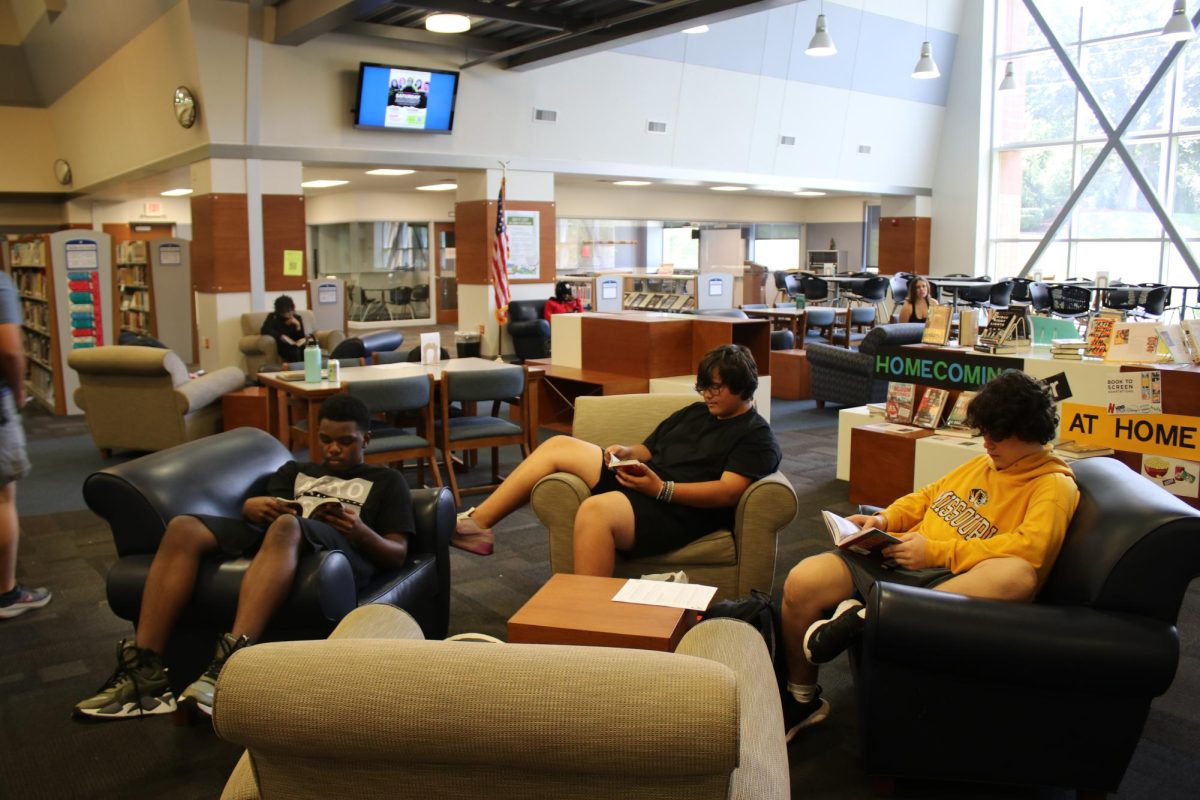Ever since Emaline Little, senior, read “Harry Potter” with her mother as a child, she has been immersed in literature.
“It’s what I did a lot through middle school and high school,” Little said.
For the 24-25 school year, faculty and staff will be emphasizing the importance of literacy at the direction of Principal Dr. Tracey Waeckerle.
Little said literacy is an essential skill to have, and it is great that it is being highlighted at MHS.
Literacy is more important now than ever with the advent of social media and artificial intelligence, Little said.
“It’s important to understand exactly what you’re reading,” Little said. “You’re constantly exposed to different opinions, or you have to tell if something is real or fake.”
Dr. Waeckerle said there is no set goal or limit in place regarding the school’s literacy goals. She is simply asking teachers to more heavily incorporate different forms of literature within their classrooms.
“Each department was asked to have a conversation about their baseline [literacy levels] in their classrooms,” Dr. Waeckerle said. “How can we increase that a little bit to bring about more exposure to those different elements?”
How this will look will depend on the class.
“In P.E. or areas where that wasn’t as big of a component, they’re looking at how they can incorporate things,” Dr. Waeckerle said. “Things like vocabulary and access to information about health.”
Dr. Waeckerle said that literacy levels are linked to overall learning.
“Higher literacy levels generally are seen to help in a lot of different areas,” Dr. Waeckerle said. “It’s going to help make kids more competitive post -high -school.”
Ray Holmes, librarian, said the new literacy plan has been implemented based on a nationwide decline in reading scores at the high school level.
“At Marquette, we’re trying to address that with our students and bolster their literacy skills and confidence in that area,” Holmes said.
Holmes is also a member of the recently established Literacy Committee, which aims to help teachers develop plans and strategies to involve literacy in their classes.
“We can help develop resources and opportunities to learn more through professional development,” Holmes said, “We try to be a solid support system for teachers in each department.”





